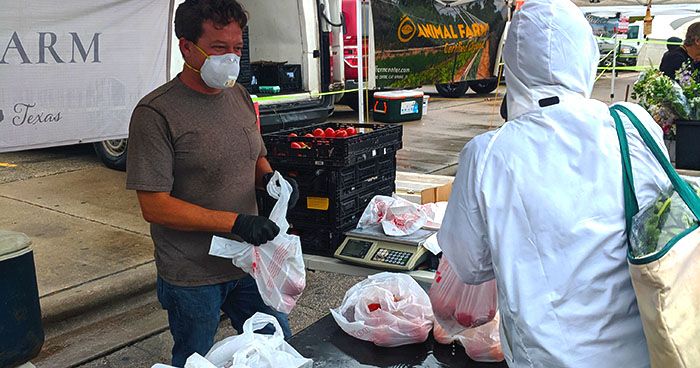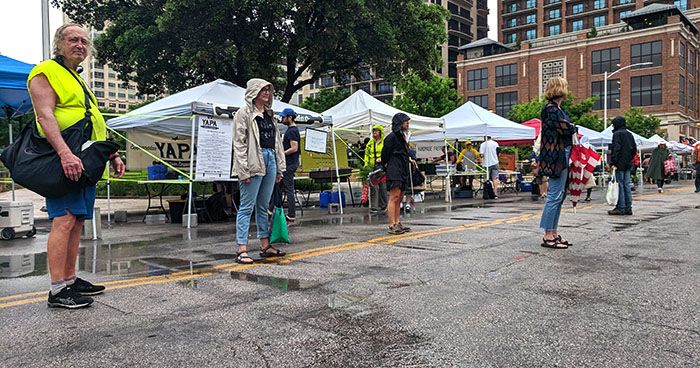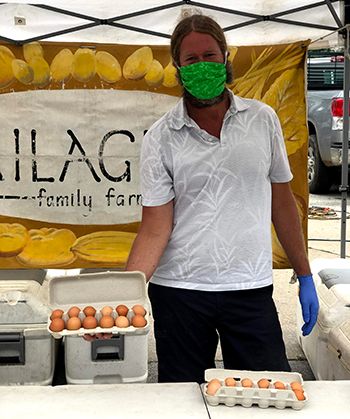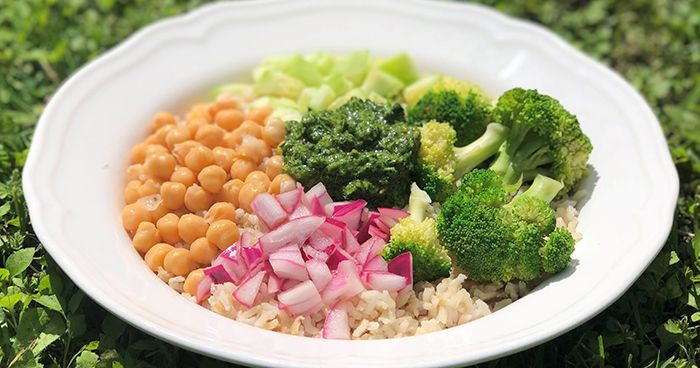Jamey Gage of B5 Farm (pictured above) stands behind his table on 4th street at the SFC Farmers’ Market on Saturday morning. In front of him are stacks of plastic bags filled with broccoli that he’s selling for $5. He is wearing a mask, black gloves, and visibly steps back as a customer comes toward the booth.
This scene is a far cry from tables that are usually overflowing with bins of tomatoes, crowded with customers swapping anecdotes about their favorite varieties.
Now people are cautious. Moving slowly but deliberately, they keep a 6-foot distance and head directly for vendors where they order - deli-style - fresh veggies, meat, and to-go foods. The usual gathering, socializing, and poring over bins of produce has been replaced with single shoppers waiting in a short line to sanitize their hands and enter the market. Tents are spaced far apart, as though repelled by magnets, and front tables prevent access to the stacks of food in the back.
Small farms, local ranches, and farmers’ markets –symbols of a slow food movement that may have seemed out of place to some people in our modern food economy - have stepped up to bat in the face of the COVID-19 pandemic. Classified as a critical food access business, the farmers’ markets are open, and farmers are moving quickly to adapt to this changing food system.






